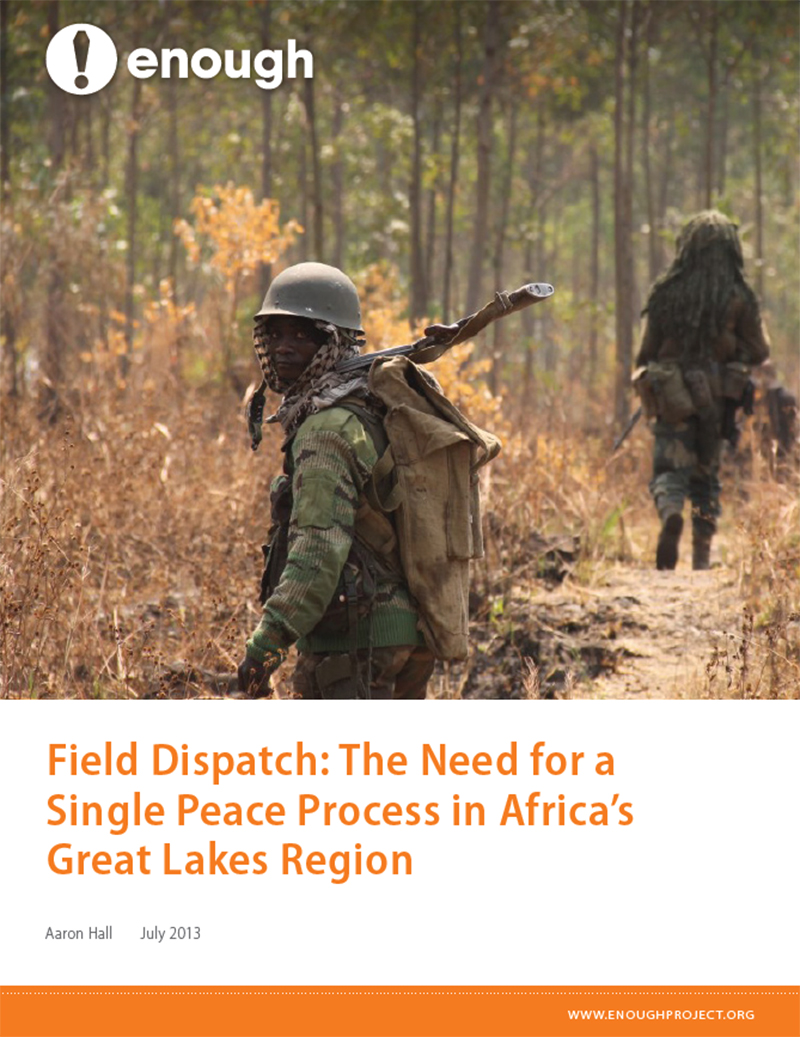
The renewed fighting between the Government of the Democratic Republic of Congo, or DRC, and the M23 rebel movement in eastern Congo is creating urgency for the establishment of a viable mechanism to create peace between the warring parties, ensure security and stability for embattled communities, and create space for humanitarian relief and economic recovery in the region. The time period between the July 31, 2013, International Conference on the Great Lakes Region, or ICGLR, heads of state meeting in Nairobi, Kenya, and the U.N. General Assembly in September presents the opening to create that mechanism.
Based on events on the ground in eastern Congo, as well as recent interviews with representatives from the parties engaged in the Kampala talks between the Congolese government and M23, it appears that progress in the talks is only being made at a cosmetic level. The Congolese government and M23 are currently attempting to discuss eight major issues, including refugee right of return, civilian protection, amnesty and political and military reintegration for M23, national reconciliation within Congo, and regional economic integration issues. Representatives from both the ICGLR and the Government of the DRC told the Enough Project that the parties are close to agreement on six of the eight issues but remain at loggerheads on two major issues: amnesty and military and political reintegration for M23 leaders and fighters. Representatives from M23, however, told the Enough Project that the two sides still could not agree on the fundamental definitions of terms such as amnesty or military and political reintegration, let alone be near agreement on a host of other issues, suggesting that the Congolese government was not negotiating in earnest at present.
Both the Congolese government and M23 continue to employ delay tactics to stall the talks to further various internal political agendas and wait for opportunities to make military gains on the battlefield—as seen in the most recent round of fighting outside Goma. Meanwhile, the ICGLR, being led by the current rotating chair of Uganda, is, according to many observers, more concerned with delivering an agreement to bolster its status as a regional power than with the substance of what that agreement might contain—a potentially dangerous dynamic for those stakeholders looking for a sustainable solution that brings peace and accountability to eastern Congo.
The U.N. special envoy for the Great Lakes region, former Irish President Mary Robinson, in conjunction with the newly appointed U.S. special envoy to the region and the DRC, former Sen. Russ Feingold (D-WI), must press to create a single, coordinated peace process under the umbrella of the nascent U.N. Peace, Security and Cooperation Framework for the Democratic Republic of Congo and the Region, or U.N. PSCF. Otherwise, all stakeholders risk having disparate regional dialogue initiatives that don’t fit into the PSCF framework, address the root causes of the conflict, or help achieve a cohesive peace in the Great Lakes.

